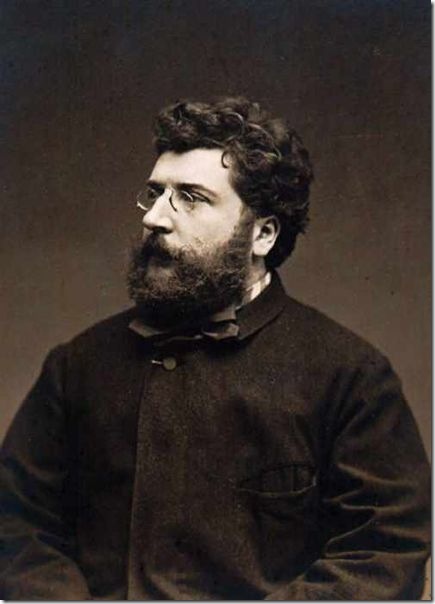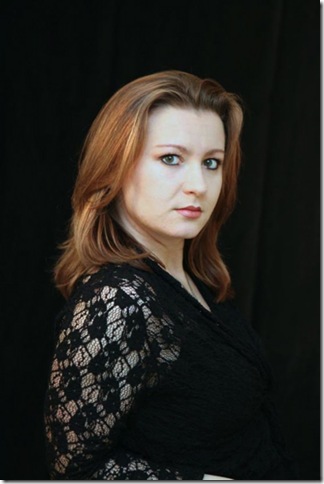The young Frenchman Jean-Luc Tingaud is the associate conductor at the venerable Opéra-Comique in Paris, the same theater (though not the same building) where the opera Carmen premiered in March of 1875.
Three months later, Carmen’s composer, Georges Bizet, died of runaway strep throat at the tragically young age of 36. Tingaud says the theater still has the original conductor’s book used during the first mounting of the piece 135 springs ago.
“We know exactly what happened during the production, which is very interesting, because Bizet made a lot of decisions during the original production,” Tingaud said. “That’s when he realized that some moments during the opera were dramatically too slow, and he had to cut.”
On Friday, Tingaud will be at the podium in the pit of Kravis Center’s Dreyfoos Hall for the first of four performances of Carmen, the last production of the season for Palm Beach Opera. Carmen is likely the best-known opera in the world, filled with wonderful tunes that are widely known by members of the general public who aren’t otherwise fans of the art form.
Written for the workingman of late 19th-century France, Carmen is based on a novella by Prosper Mérimée and tells the story of a free-spirited Gypsy woman who works in a tobacco factory in the Spanish city of Seville. She falls in love – or at least in lust – with Don José, a soldier billeted there, who goes to prison for her and abandons his military career to join a band of thieves in the mountains.
But Carmen is fickle, as she makes a point of noting early on, and soon she has tired of José, throwing him off for the handsome bullfighter Escamillo. José confronts Carmen outside the bullring, demanding that she return to him, and she refuses. In a fit of rage, José stabs her to death, and then collapses in anguish next to her body.
The two principal characters will be played by two different teams of mezzo-soprano and tenor: Hungarian mezzo Viktoria Vizin plays opposite the Italian tenor Andrea Carè on Friday night and Sunday afternoon; the Polish-born mezzo Magdalena Wór plays Carmen on Saturday night and Monday afternoon to the Don José of the Puerto Rican tenor Rafael Dávila.
For Vizin, the role has become something of a specialty. She’s sung it in London, Chicago, Phoenix and Pittsburgh, among other places, and in January sang it at the Metropolitan Opera in New York, when she went on in place of an indisposed Olga Borodina.
Vizin has very definite ideas about who she thinks Carmen is, and director John Pascoe’s vision, which contends that Carmen feels real love for her men, and isn’t just manipulating them, is something of a departure for her.
“I’ve never done this style before, which is to emphasize the love part, the passion part, not the so-called bitchy part,” said Vizin, whose other roles have included Judit in a mounting of Bartok’s Bluebeard’s Castle in Budapest.
Vizin, whose 8-year-old daughter – named, of course, Carmen – is going to be on stage in this production, argues that the opera was written to provoke, not charm.
“I don’t really believe that Bizet wrote this [for audiences] to love the title role,” she said. “No. Bizet wrote it to irritate the upper-class people … And I think we have to reflect this.”
Wór (pronounced Voor), who emigrated to the United States from Poland as a young girl and holds degrees from Georgia State University, is performing the role of Carmen for the first time, though she has recorded a demo version of the Habanera on her Website and covered the minor role of Mercédès for a 2008 Met Opera production.
“People get used to seeing certain things from ‘Carmen.’ So I think the challenge is to give them something new,” Wór said. “And I think John really gave us something wonderful in that he came from a different angle. He said, ‘What if you take this Carmen and she is not a cold-hearted person?’ She really does have these feelings, and she can love.”
Other roles for Wór have included Cherubino in Mozart’s Le Nozze di Figaro and Maddalena in Verdi’s Rigoletto, but she says Carmen has always been her dream role.
“She’s still very sensual, she’s still very sexy, she’s still desirable by all,” she said. “But nevertheless she really does have a heart in this show. And she has a heart until the end, and that’s the twist of it, and it’s a twist I hope will come across.”
Carmen as we know it today is different than the opera its first audiences saw. The original Carmen had spoken dialogue between the arias and set pieces, but after Bizet’s death, his close friend Ernest Guiraud (1837-1892), a New Orleans-born French composer and teacher, wrote music for much of this dialogue, transforming it into a grand opera.
Tingaud agrees with the idea that had Bizet lived, he probably would have revised it himself for grand opera use, but said in his absence, it was Guiraud who made the worldwide success of Carmen possible.
“He did an amazing job with the recitative because he did it really right,” Tingaud said. “And at the same time, he was very modest. He just used some of the tunes of ‘Carmen,’ but very [sparingly]. So the recitatives are very well-done.”
Carè, who has sung Don José in a production in Rome, said he loves to sing the role because of its complexity.
“Don José has a deep soul. He is a real man who needs to love and to be loved,” Carè said, adding that José would have been better off with Micaëla, the orphan girl who grew up with him and whom his mother wants him to marry. (The American soprano Georgia Jarman will sing the role in all four performances.)
“But his passion is stronger than reason,” he said, and that makes the character understandable, because living deeply is often a matter of going with your heart, not your head. When Jose kills Carmen, it is the act of a man who can keep his lover only by ending her life, Carè said.
“At the end, he stops his life. He should die also,” he said. “The only important thing is that they are together … He wants only to love her, deeply.”
Dávila, who sang the role on local stages just three months ago in a touring Teatro Lirico d’Europa production, points out that the Palm Beach Opera presentation draws on the original Mérimée novella for its backstory, and the picture there of José is quite different than the “mama’s boy” you often see in mountings of this work.
“When we read the play, then we know that he has already killed somebody, and that’s the reason he is a soldier now in Seville,” Dávila said. “And we are trying to show the killer, that this guy could kill Carmen at any moment because of his jealousy.”
That should be evident from the very first moments of the opera, he said.
“The way I played it before, there was really no bond between them until the very end of the first act,” he said. “But in this production, we see that even right from the beginning that he can’t keep his hands off her, he’s always trying to hold her.”
As the character progresses through the course of the opera, so does his vocal style, he said, moving from the Gounod-style lyricism of the first act to the romantic power of his great second-act aria, La fleur que tu m’avais jetée (or The Flower Song), and finally to a dramatic tenor by the end of the opera.
Dávila, who last month finished a run at the Sarasota Opera as the lead (King Charles VII) in Verdi’s little-known Giovanna d’Arco, said he is looking forward to more work in Italian repertory, Verdi and Puccini in particular. But Don José is one of his favorite roles.
“My voice teacher told me, ‘When you sing Don José, you will love it. It’s perfect for you. Once you sing that, you won’t want to sing anything else,” Dávila said.
The popularity of Carmen can obscure Bizet’s achievement. It is nothing less than the greatest French opera of the 19th century, Tingaud said, and there are three good reasons for that.
“First, he was a master of orchestration, in the French school of that time,” he said. “And the melodic inspiration: that’s genius. And the third thing is his sense of harmonic writing. He writes harmonies that no one before him had the idea to put in an opera.
“’Carmen’ breaks something, it’s coming from nowhere. It’s the beginning of real drama in the opera,” he said.
It was a breakthrough for opera as much as it was for Bizet, but the effort taxed the composer’s health, he said.
“He could not sustain the success of ‘Carmen.’ It exhausted him, this opera,” Tingaud said. “We say sometimes that ‘Carmen’ killed Bizet.”
But surely he would have been proud of the success his opera has enjoyed for so long, and the dramatic punch it continues to wield.
Just ask Viktoria Vizin, whose career has been bound up with this role.
“I like it because it’s not really about singing, it’s the whole package. You have to grow with the role, from the very first ‘Habanera’ to the end,” she said. “No one will remember if one note hasn’t been nailed, if at the end, they don’t exit the theater [saying], ‘Wow! What a story!’“
Carmen will be performed Friday through Monday by the Palm Beach Opera at the Kravis Center, West Palm Beach. Performances are at 7:30 p.m. Friday and Saturday, and 2 p.m. Sunday and Monday. Tickets range from $23 to $175. Call the opera at 833-7888 or the Kravis Center at 832-7469, or visit www.pbopera.org.





